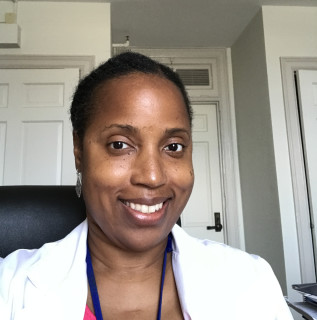Dear Interns,
By my own admission I wasn’t a very good intern. I’d had a very close relationship with sleep all of my life and having that relationship disrupted every third night was difficult. Because of a paroxysmal tachycardia I was diagnosed with at 19 I’d decided to have a “caffeine free” residency. So by sheer force of will I stayed up every third (or sometimes fourth night) for four years.
When I was an intern, I never slept on call, though maybe occasionally I’d lay down. At any rate, I was tired, I was dragging, I discovered when I didn’t sleep at night I’d have cold intolerance in the morning. So there I was, shivering and presenting at the bedside. Memory — what memory? It was hard enough to remember the patients; keeping up with the latest NEJM research was nearly impossible. I got to work early and stayed late. But residency was tough. Maybe it wasn’t that bad, but it felt that bad at the time.
To add insult to injury—I didn’t ask for help.
Well, I asked once, about the dose of prednisolone for a 2-year old — one or two mg/kg? My always smiling, soon-to-be-crowned-Chief-resident glared at me as if my face no longer had a nose and remarked, “The same dose it’s always been.”
And so it went...
In 1998 there were few women doing Medicine at MGH and even fewer underrepresented minorities.
It was hard for me to ask for help because I felt like that would be admitting that I wasn’t good enough. Advisors and mentors were few and far between. I had rare triumphs and lots of defeats. I just kept going, going, going, and it got better...until I almost died.
By then, I was a fourth-year Med/Peds resident and I got really tired, and kinda sick, and then I got short of breath. The sad part is that by that point, I didn’t know the difference between sick and therefore tired, or tired and therefore sick.
One day in April my doctor called me with the final read on a recent chest X-ray (I was feeling winded) — “grossly enlarged heart.” I left work and went to the MGH ER where I was told I had a large pericardial effusion with tamponade physiology. I was rushed to the cath lab where I had a pericardiocentesis and a pigtail placed. My old co-intern, who was now a Cardiology fellow, religiously came in each morning to check on my pigtail catheter and quantify the drainage. After a few days, they pulled the catheter and I was sent home to wonder: “What in the world just happened?”
The doctor became the patient — in my own hospital with my own colleagues. It was an eye-opening experience. I recovered from my acute issues and felt better. When I first heard the CXR results I’d convinced myself that I had myocarditis and less than six months to live without a transplant. This was not the case (so I was genuinely relieved), but it was still unsettling not to have a diagnosis.
Lucky for me, graduation was near. I graduated, got married, honeymooned in Playa Del Carmen, and moved to Atlanta. A couple of months later, I’d take and pass my Internal Medicine boards and then later my Pediatric Boards. In September after a mediastinoscopy with lymph node biopsy, I’d learn the culprit: Tuberculosis.
So yes, residency can be tough. During residency you may lose people you care deeply for. Some of them will be family members, some will be patients. During this time some of you will marry. Some of you may break up. Some of you will have children. Life goes on and things happen — good and bad.
At times you will be uncertain and you will be scared. Don’t be like me — I want you to ask for help. We are here to train you, to teach you, to help you. You chose us and we chose you.
If you listen to your residents, your attendings, and your patients, you will learn. Be humble, but be a leader. Work hard but don’t sacrifice yourself. We need you well to care for others. We need you well to provide compassionate, efficient, culturally-competent patient care. We will show you how. Be attentive and aware of your duties to patient and families. Serving others is a privilege. Show gratitude. Be coachable and open to learning. Treat everyone you encounter with respect. Report incidents that are concerning, especially those that impact or have the potential to impact patient care. Take ownership of your patients and your program. Ask for help until you get it.
Interns — you are up to the challenge. Every challenge is an opportunity to learn, not only about your patient, but about yourself. The Grady Memorial Hospital Values sum up the job that we must do at each day: Do good. Do right. Serve others with excellence. Be patient centered. Be safe.
Image: VectorMine / shutterstock







